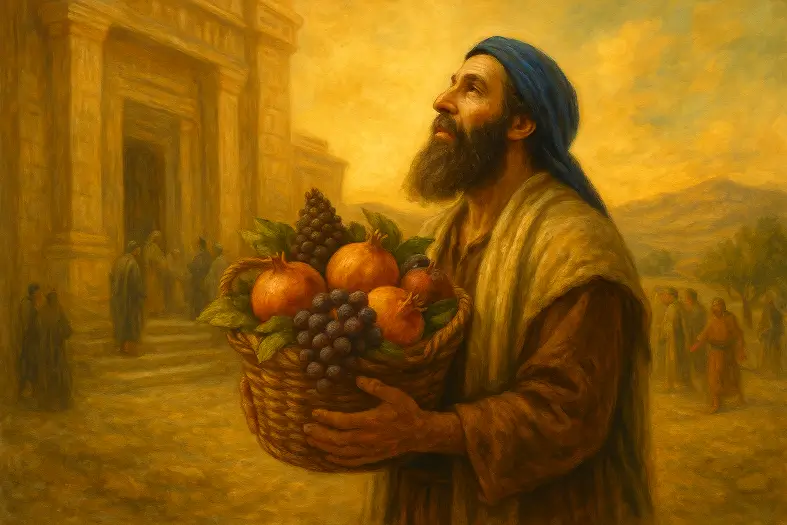


Each year, farmers must separate Ma’aser Rishon (the first tithe) from their crops and give it to the Levites.
This mitzvah commands the separation of a tenth of Israel’s agricultural produce (Ma’aser Rishon) to be given to the Levites. Unlike Kohanim, who received Terumah Gedolah, the Levites were supported through this tithe since they did not receive territorial inheritance in the Land of Israel.
The mitzvah underscores the spiritual role of the Levites, who were set aside for service in the Temple, teaching Torah, and maintaining Israel’s holiness. By sustaining them materially, the rest of Israel partnered in their Divine mission.
Commentary & Classical Explanation:


Represents Emunah—the deep, inner trust in Hashem’s presence, oneness, and constant involvement in our lives. This badge symbolizes a heartfelt connection to G-d, rooted in belief even when we cannot see. It is the emotional and spiritual core of many mitzvot.
Represents the concept of spiritual intentionality, purity, and sanctity—set apart for a higher purpose.
Mitzvot that uphold fairness, honesty, and moral responsibility. Justice is kindness structured — ensuring that society reflects G-d’s order through truth, equity, and accountability.
Mitzvot that strengthen communal life — showing up, participating, supporting, and belonging. Community is where holiness is shared, prayers are multiplied, and responsibility becomes collective.
Mitzvot that define and deepen the relationship between a person and their Creator. These include commandments involving belief, prayer, Shabbat, festivals, sacrifices, and personal holiness — expressions of devotion rooted in divine connection.
Mitzvot that govern ethical behavior, kindness, justice, and responsibility in human relationships. These actions build trust, dignity, and peace between people.

Dive into mitzvos, prayer, and Torah study—each section curated to help you learn, reflect, and live with intention. New insights are added regularly, creating an evolving space for spiritual growth.

Explore the 613 mitzvos and uncover the meaning behind each one. Discover practical ways to integrate them into your daily life with insights, sources, and guided reflection.

Learn the structure, depth, and spiritual intent behind Jewish prayer. Dive into morning blessings, Shema, Amidah, and more—with tools to enrich your daily connection.

Each week’s parsha offers timeless wisdom and modern relevance. Explore summaries, key themes, and mitzvah connections to deepen your understanding of the Torah cycle.